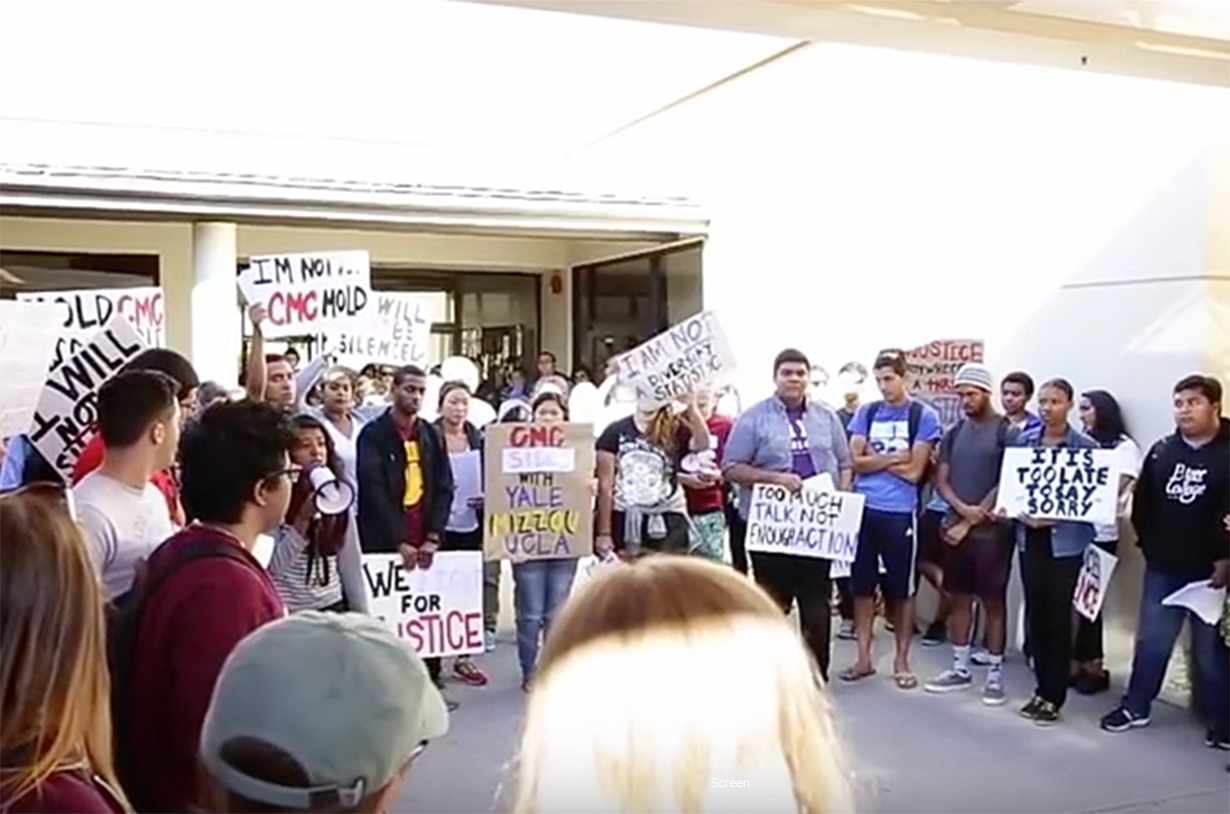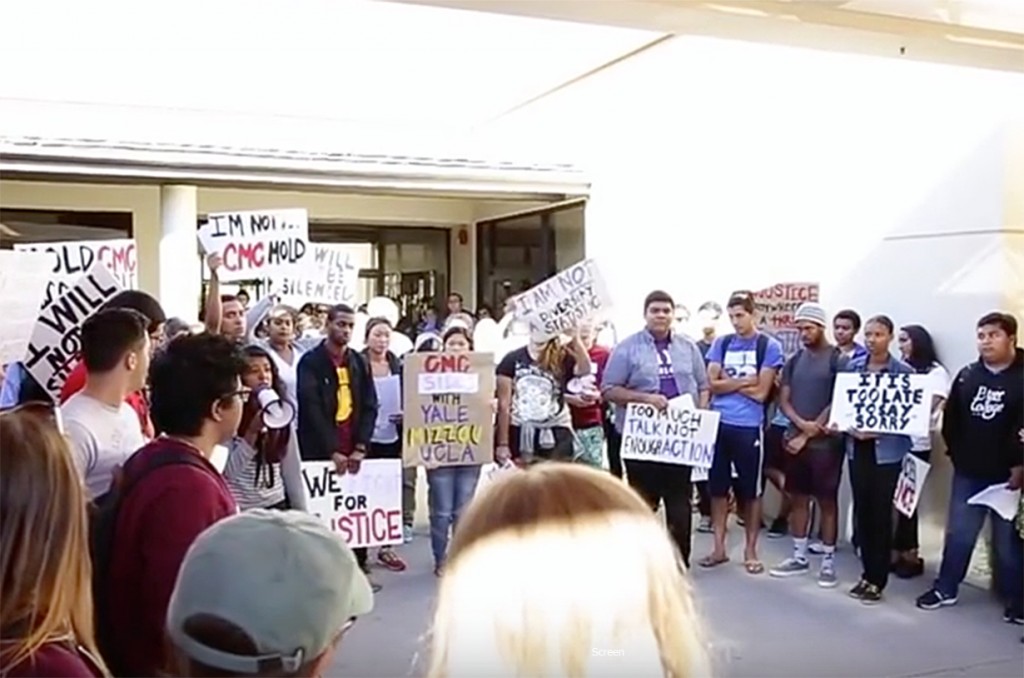We offer two examples of campus thought today: the first, one of childish wishful thinking by a Million Student March organizer; and the second, one of mature reflection by the student editors of the Claremont Independent, the Claremont McKenna College student newspaper.
First, the mindlessness. Neil Cavuto's 9-minute interview of Northwestern University student Keely Mullen is a wonder to behold.
Keely articulates the movement’s demands easily enough — free public college, student debt cancelation, and a $15-an-hour minimum wage for student workers on campus — and confidently suggests that they should be funded by “the 1 percent of people who are hoarding the wealth and causing a catastrophe students are facing.”
Keely stumbles badly, however, on a series of questions that follow. The giveaways would not, could not, be paid for by her family, which she describes (4:40 mark) as “an incredibly working class family … already on numerous forms of government assistance and … basically scraping by in order to get me through college.”
The most dramatic point of the interview comes about the 7:00 minute mark. Cavuto explains to Keely that taxing the rich at 100% of their earnings would not produce enough money to pay for the Medicare program alone for 3 years. “Even if you took all the money from the rich that you say are getting away with murder – if you took it all away,” says Cavuto, “it wouldn’t support one entitlement in this country for three years.”
With the tone of an 8-year-old who’s just been told there is no Tooth Fairy, Keely stutters, “I don’t … yeah … I don’t … I don’t believe that. Yeah, I’m sorry, I just don’t … that sounds completely ludicrous to me.”
As Cavuto explains to disbelieving Keely, taxing one-percenters at 100% would yield about $1 trillion in revenue, an amount too small to pay the tab of even one of their demanded giveaways: the $1.3 trillion in outstanding student loan debt.
Second, an example of critical thought. Claremont McKenna College (CMC) has been roiled by student protests that were sparked by a poorly phrased email and resulted in Dean Mary Spellman’s resignation. Claremont Independent student editors catalogue their disappointments in every group’s actions, including administrators (by name and deed), the rioters, and fellow students, like themselves, who stood by silently.
To our fellow Claremont students, we are disappointed in you as well. We are ashamed of you for trying to end someone's career over a poorly worded email. This is not a political statement––this is a person's livelihood that you so carelessly sought to destroy. We are disappointed that you chose to scream and swear at your administrators. That is not how adults solve problems, and your behavior reflects poorly on all of us here in Claremont. This is not who we are and this is not how we conduct ourselves, but this is the image of us that has now reached the national stage.
We are disappointed in your demands. If you want to take a class in "ethnic, racial, and sexuality theory," feel free to take one, but don't force such an ideologically driven course on all CMC students. If the dearth of such courses at CMC bothers you, maybe you should have chosen a different school. If students chose to attend Caltech and then complained about the lack of literature classes, that's on them. And though it wouldn't hurt to have a more diverse faculty, the demand that CMC increase the number of minority faculty members either rests on the assumption that CMC has a history of discriminating against qualified professors of color, or, more realistically, it advocates for the hiring of less qualified faculty based simply on the fact that they belong to marginalized groups. A hiring practice of this sort would not benefit any CMC students, yourselves included.
We are disappointed in the fact that your movement has successfully managed to convince its members that anyone who dissents does so not for intelligent reasons, but due to moral failure or maliciousness. We are disappointed that you've used phrases like "silence is violence" to not only demonize those who oppose you, but all who are not actively supporting you. We are most disappointed, however, in the rhetoric surrounding "safe spaces." College is the last place that should be a safe space. We come here to learn about views that differ from our own, and if we aren't made to feel uncomfortable by these ideas, then perhaps we aren't venturing far enough outside of our comfort zone. We would be doing ourselves a disservice to ignore viewpoints solely on the grounds that they may make us uncomfortable, and we would not be preparing ourselves to cope well with adversity in the future. Dealing with ideas that make us uncomfortable is an important part of growing as students and as people, and your ideas will inhibit opportunities for that growth.
We are adults, and we need to be mature enough to take ownership of and responsibility for our feelings, rather than demanding that those around us cater to our individual needs. The hypocrisy of advocating for "safe spaces" while creating an incredibly unsafe space for President Chodosh, former Dean Spellman, the student who was "derailing," and the news media representatives who were verbally abused unfortunately seemed to soar over many of your heads.
Lastly, we are disappointed in students like ourselves, who were scared into silence. We are not racist for having different opinions. We are not immoral because we don't buy the flawed rhetoric of a spiteful movement. We are not evil because we don't want this movement to tear across our campuses completely unchecked.
We are no longer afraid to be voices of dissent.
UPDATE: It turns out Keely’s family isn’t impoverished after all. See Keely Mullen: Million Student March Spokeswoman is in the ‘One Percent’


